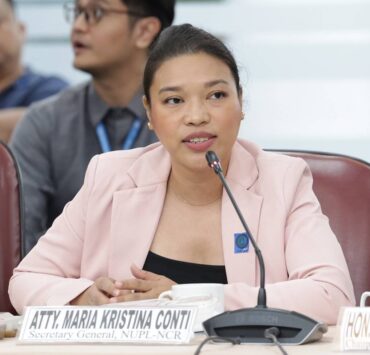Now it’s ghost students

The unscrupulous people never seem to run out of ways to fiddle with the system for their personal gain—from “ghost projects” to “ghost employees,” and now, “ghost students.”
The Department of Education (DepEd) recently flagged 12 private schools across nine divisions for having nonexistent students participating in the government’s Senior High School Voucher Program (SHS-VP). The DepEd, just in time, stopped the release of P52.5 million worth of vouchers covering the school year 2023-2024 because it could not verify the beneficiaries’ existence.
This, however, is not the first time that the shady practice has been discovered.
Sen. Sherwin Gatchalian said “ghost students” in the SHS-VP was an “ongoing problem.” Last year, the Senate committee on basic education, which he heads, found that some schools were billing the government even if they had no students in the program.
That this is an ongoing issue is an understatement because, based on reports, the practice was uncovered as early as 2016 or a year after the DepEd rolled out the SHS-VP, which is meant to subsidize deserving Grade 11 and Grade 12 students in participating private schools. Each beneficiary receives a subsidy ranging from P14,000 to P22,500. This year’s budget for the program amounts to P27 billion.
Lack of accountability
DepEd does not distribute the subsidy directly to the students but to the beneficiary’s chosen school. Under the program guidelines, violations include “ghost students,” falsifying dates, and billing unqualified voucher beneficiaries.
For the school year 2016-2017, the Commission on Audit discovered that 115 “ghost students” were listed multiple times. In 2018, state auditors found more systemic issues such as the lack of clear guidelines from DepEd on how to review billing statements with regional and division offices left to validate them at their discretion.
By last year, data from the Private Education Assistance Committee showed that there were an estimated 19,000 undocumented beneficiaries not only under the SHS-VP but also in DepEd’s Expanded Government Assistance to Students and Teachers in Private Education, the department’s biggest scholarship program for private schools.
That this unethical practice has been allowed to continue for almost a decade now points not only to DepEd’s negligence but to the lack of accountability, which has been pervasive within the bureaucracy where erring officials get away with corruption—from the petty to the serious—simply because the system allows them to. It becomes even more appalling and unjust when taken within the context of the country’s learning crisis because the funds allocated for this program could have helped decongest public schools and support the education of poor but deserving—and actually existing—students.
More stringent rules
Education Secretary Sonny Angara said this week that the department is investigating whether its personnel were involved in the scheme, noting that only a few people have information on the program. He also mentioned that a previous investigation identified accomplices who have been charged and are no longer with DepEd.
This apparently has been not enough since the fraudulent activity has continued putting at risk billions of pesos in funds. The irony here is that DepEd’s budget was cut this year from its proposed P748 billion to P737 billion. All the more the department should ensure the judicious spending of its allocation, including that budget for items like the voucher program should go to the intended beneficiaries. It should also pursue cases against erring personnel and bar them from public service to ensure that they don’t end up in another government office and corrupt the system again.
The DepEd should also take up Gatchalian’s suggestions to implement more stringent rules such as excluding underperforming private schools from receiving voucher subsidies. Gatchalian has filed Senate Bill No. 2911, which seeks to amend Republic Act No. 6728 or the law that provides assistance to teachers and students in private education.
Highest standards
SB 2911 seeks to tighten requirements not only for SHS-VP but also for the government’s broader subsidy program for high school learners in private schools. In the bill’s explanatory note, Gatchalian said the program lacks evidence-based slot allocations and failed to provide equitable access to quality education for “poor but deserving” students. He further noted that current rules even allow schools with failing students to participate.
This should not even be up for debate because any education program must commit to the highest standards.
The existence of “ghost students” in our schools represents a deeper problem of corruption and the lack of accountability and concern about how state resources are spent. Seeing that the DepEd has failed to put these factors in check, are we even surprised at the dismal state of our education system?

















